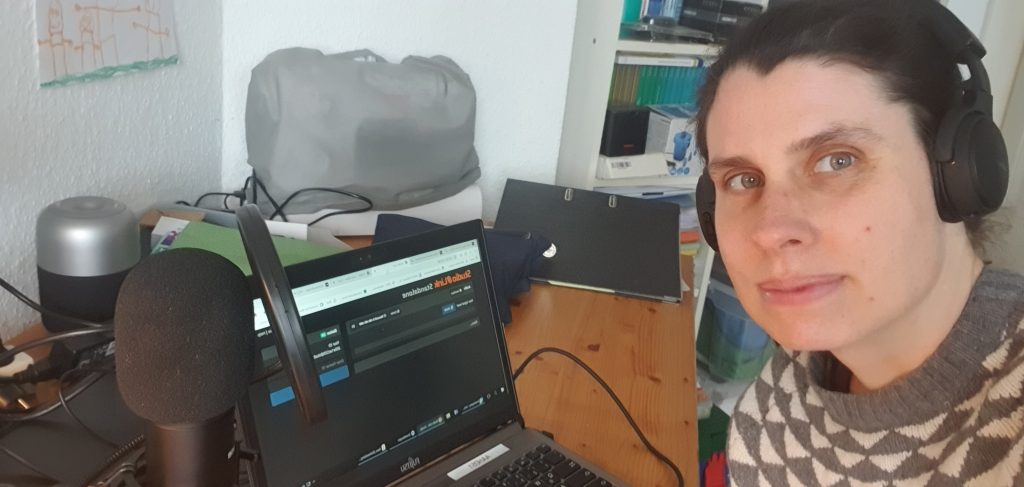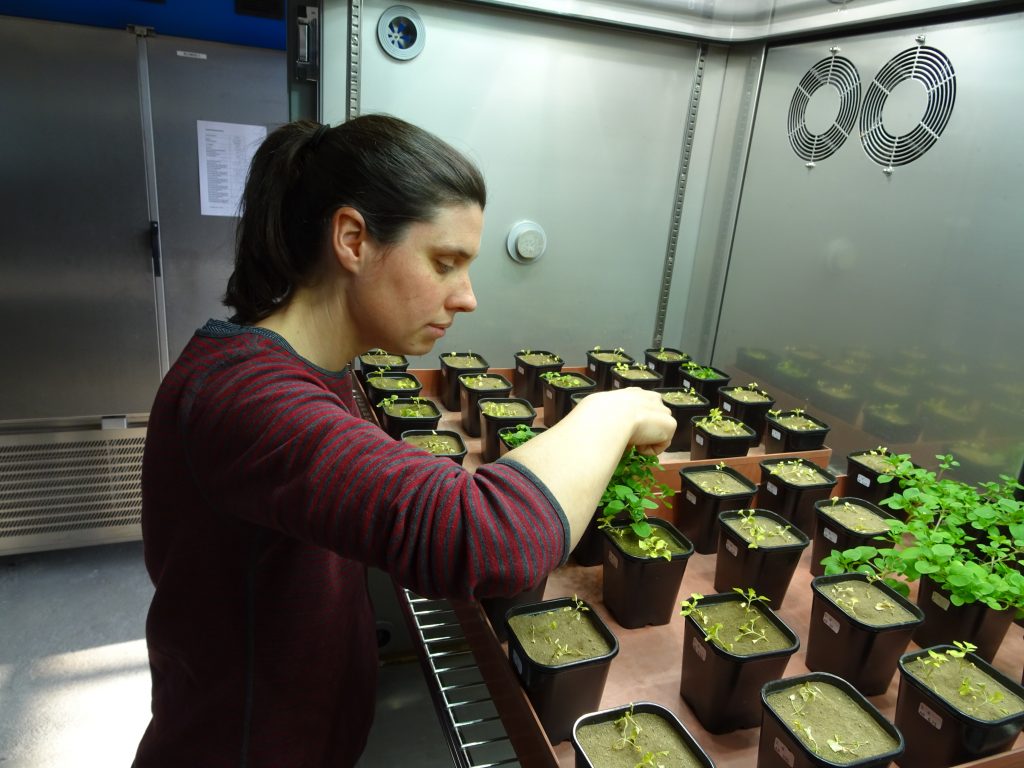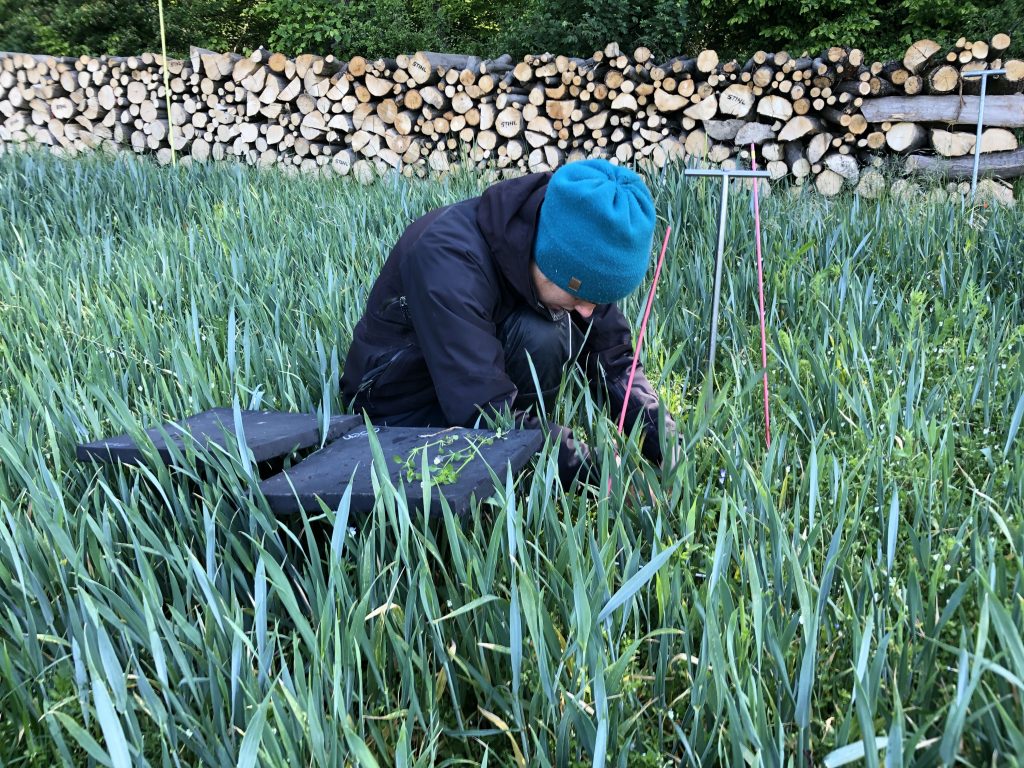Forsch!-Podcast: What Needs to Change in the Fields
Startseite » Forsch!-Podcast: What Needs to Change in the Fields
Forsch!-Podcast: What Needs to Change in the Fields
In the second Forsch! episode, BZ reporters Andreas Eberhard and Laura Franz (ForschungRegion Braunschweig) meet weed researcher Dr. Lena Ulber from the Julius Kühn Institute (JKI) in Braunschweig. They talk about weeds and chemicals in the field and how agriculture needs to change to stop the loss of biodiversity.

In Dialogue with Farmers
Biodiversity is noticeably declining in Germany – a consequence of the intensive agricultural use of land. The social pressure on farmers to cultivate their fields in a more ecologically compatible way is therefore increasing. Weed researcher Lena Ulber tries to mediate as part of her work. This often happens very specifically in projects in which the scientists of the JKI carry out experiments on fields together with the farmers and check which measures for plant protection can be implemented. Ulber reports that the discussions are usually less tense than one would expect. Farmers have also now recognised that something needs to change in agriculture to ensure the preservation of biodiversity. “However, two very different expectations meet here: on the one hand, the view of agriculture, which understandably wants to produce on its land, and on the other hand, the expectation of society and politics that this should happen in an environmentally friendly and biodiversity-promoting way,” explains the weed researcher. It is therefore important to remain in dialogue and to look together at which measures are feasible and have an effect and which are not. Ulber thinks it is wrong to simply blame the farmers for the loss of biodiversity. “This must be seen as a task for society as a whole. There are many actors who have to become active and you can’t simply expect agriculture to make a 180-degree turn,” says the scientist.

Plant Protection Products in Focus
An important factor in protecting biodiversity in the fields is plant protection products. These include, for example, herbicides, i.e. chemical agents that act against weeds. They are the focus of Ulber’s research. Herbicides act specifically against certain weeds and thus reduce their density in the field. This in turn leads to a decline in biodiversity, because “weeds form the basis in the agricultural ecosystem. They are the most important link in the system because they can fulfil many different functions,” says Ulber. Weeds can provide habitat and food for animals and insects and are therefore of great importance for many other groups of organisms in this agricultural ecosystem.
At the same time, however, some weeds massively damage the crops and, as a result, reduce the yield. So it doesn’t seem to work entirely without chemical plant protection products. However, they could be supplemented and partially replaced by many other measures, which would also prevent resistance, says Ulber. Possible steps could be the increase in non-chemical measures, such as changing crop rotations, mechanical weed control and more intensive tillage. However, one would then also have to take a much closer look at the areas and see what is feasible: “For example, does mechanical weed control make sense here? Can I plough here because the area has no slope. It becomes more complex for the farmer, as he has to choose from the many measures the one that shows a high level of effectiveness for his field,” explains Ulber.

A Balancing Act
“The challenge is to find a balance so that we promote weeds to the extent that we can benefit from their ecological services and, on the other hand, avoid them having too massive an impact on the yield or quality of the crop,” the JKI researcher sums up. Politics is also called upon here, for example by linking EU agricultural aid to the provision of ecological public services by farmers – “a kind of premium system”.
You can find out how Lena Ulber also deals with weeds in her own garden and why she speaks of weeds and not wild herbs in this second episode of “Forsch”.
The podcast “Forsch! – Science in an Interview” is a cooperation between the ForschungRegion Braunschweig and the Braunschweiger Zeitung. The moderators Laura Franz (ForschungRegion Braunschweig) and Andreas Eberhard (Braunschweiger Zeitung) talk to actors in the region about their research, their person – and about current social, political and ethical questions and debates.
A new episode every month.
Listen directly here or stream on Spotify, Apple Podcasts or Deezer.
